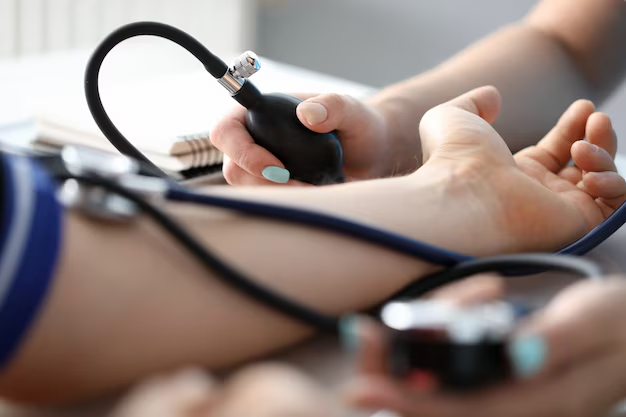Your Guide to How To Reduce Hypertension
What You Get:
Free Guide
Free, helpful information about HyperTension FAQ and related How To Reduce Hypertension topics.
Helpful Information
Get clear and easy-to-understand details about How To Reduce Hypertension topics and resources.
Personalized Offers
Answer a few optional questions to receive offers or information related to HyperTension FAQ. The survey is optional and not required to access your free guide.
Natural Ways to Keep Your Blood Pressure in Check
Living with hypertension can often feel like a ticking time bomb. Under pressure—literally—one might wonder how best to alleviate the strain and live a healthier, more balanced life. Fortunately, managing high blood pressure doesn't always have to involve medication. Here’s a roadmap to naturally reduce hypertension and improve your overall wellness.
Adopt a Heart-Healthy Diet
One of the most effective strategies is to adjust your diet. The Dietary Approaches to Stop Hypertension (DASH) eating plan emphasizes fruits, vegetables, lean proteins, and whole grains. By lowering sodium and increasing potassium intake, you can balance your body's fluid levels and reduce pressure on your artery walls. Foods rich in omega-3 fatty acids, such as salmon and walnuts, are particularly beneficial to cardiovascular health.
Keep an Eye on Your Weight
Maintaining a healthy weight plays a significant role in controlling blood pressure. It’s estimated that losing as little as 5-10 pounds can make a big difference. Regular physical activity not only helps with weight management but also strengthens your heart. Aim for at least 150 minutes of moderate-intensity aerobic exercise, such as brisk walking or cycling, each week. Small, consistent changes lead to sustainable results.
Manage Stress Effectively
In today's fast-paced world, managing stress is crucial in controlling hypertension. Techniques such as meditation, yoga, and deep-breathing exercises can lower stress hormone levels, which in turn can reduce blood pressure. Finding a creative hobby or spending time in nature can also provide substantial emotional relief. Remember: Taking time for yourself isn’t a luxury—it’s a necessity.
Limit Alcohol and Caffeine Intake
While a glass of wine might seem relaxing, reducing alcohol consumption is essential for lowering blood pressure. Aim to limit yourself to moderate levels, categorized as up to one drink per day for women and two for men. Caffeine, although it provides that much-needed morning jolt, should also be consumed in moderation. Consider swapping your second cup of coffee for herbal tea.
Quit Smoking and Limit Salt
Smoking is notoriously harmful to blood vessels, and quitting can yield immediate and long-term benefits for your heart health. Cutting back on caffeine goes hand-in-hand with reducing salt intake. Become an avid label reader and choose low-sodium options. These steps can help relax blood vessels and decrease hypertension risk.
Finding support is key in managing hypertension. Seeking assistance doesn’t only apply to healthcare. Many financial aid programs can provide relief in other life aspects, which indirectly contributes to better health management. Here's a brief list of resources:
- 💼 Government Health Insurance Programs: Medicare and Medicaid can reduce the burden of medical expenses for eligible individuals.
- 💳 Debt Relief Solutions: Programs like credit counseling can help manage and reduce medical debts.
- 🎓 Educational Grants and Scholarships: Many educational institutions offer funding to those pursuing careers in health and wellness, potentially reducing educational debts.
- 🏡 Rental Assistance: Local government aid is available for those struggling with housing costs, improving living conditions and alleviating stress.
- 🍎 Nutritional Assistance Programs: SNAP benefits can help you afford healthier foods to follow dietary adjustments.
By incorporating these lifestyle changes and seeking the right support, you can manage your hypertension effectively. Remember, reducing high blood pressure is not just about making changes in your lifestyle, but also about leveraging available resources to create a holistic plan for wellness.
What You Get:
Free HyperTension FAQ Guide
Free, helpful information about How To Reduce Hypertension and related resources.

Helpful Information
Get clear, easy-to-understand details about How To Reduce Hypertension topics.

Optional Personalized Offers
Answer a few optional questions to see offers or information related to HyperTension FAQ. Participation is not required to get your free guide.


Discover More
- a 66 Year Old Female With a History Of Hypertension
- Are Eggs Bad For Hypertension
- Are Eggs Good For Hypertension
- Are Endocrine Disorders Causing Hypertension Rare
- Can Adderall Cause Hypertension
- Can Alcohol Cause Hypertension
- Can Allergies Cause Hypertension
- Can Anemci People Get Hypertension
- Can Anemia Cause Hypertension
- Can Antibiotics Cause Hypertension
